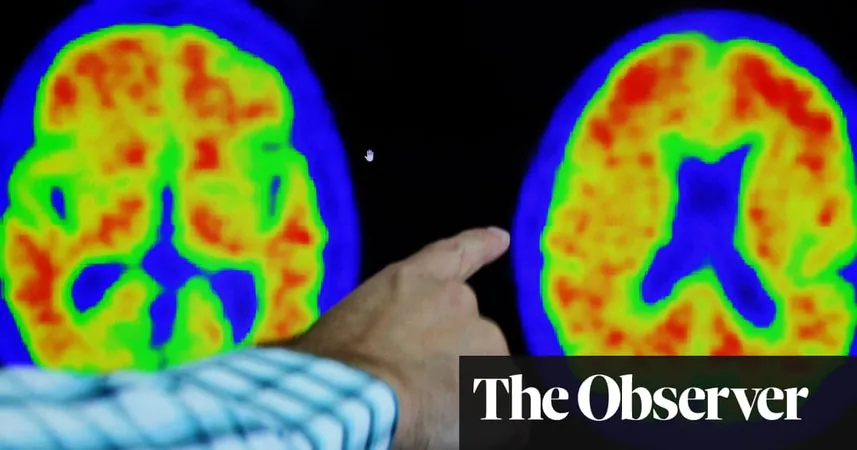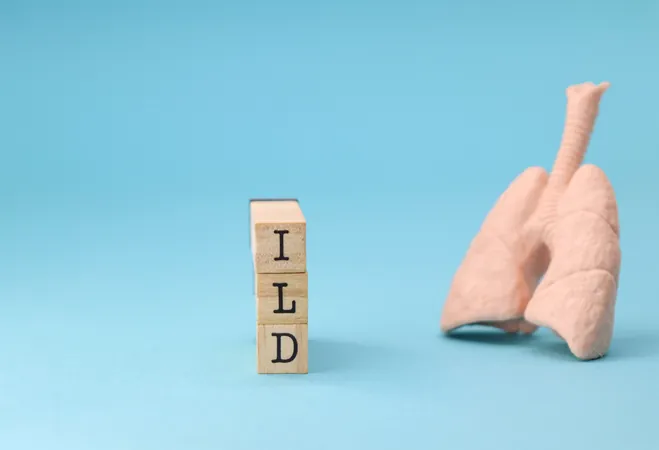
Unlocking the Mystery: Do Cancer Survivors Have a Lower Risk of Alzheimer's Disease?
2024-11-16
Author: John Tan
Introduction
As the global population ages, the prevalence of chronic illnesses like cancer and Alzheimer's dementia is rising dramatically, especially in aging countries like the UK. However, a remarkable and puzzling association has surfaced between these two formidable diseases, which has captivated the medical community for decades.
Research Findings
Research conducted at a psychiatric center in New York several years ago introduced a curious connection between cancer and Alzheimer's disease. Autopsy results suggested an unexpected inverse relationship, prompting further scientific inquiry. In a significant epidemiological study led by Jane Driver from Brigham and Women’s Hospital in Boston, researchers tracked a cohort of 1,278 participants aged 65 and older over a decade, revealing astonishing findings: cancer survivors exhibited a 33% reduced risk of developing Alzheimer's compared to non-cancer patients.
While this discovery sparked interest, experts urged caution, contending it could be a result of survival bias — those with cancer simply might not live long enough to manifest Alzheimer’s symptoms. Subsequent investigations into this phenomenon have been extensive and illuminating.
Recent Studies
In July 2023, researchers from Imperial College London published the most comprehensive study to date, analyzing NHS health data for over three million people aged 60 and above. Their findings corroborated prior research, revealing that cancer survivors are 25% less likely to experience age-related dementia, particularly after diagnoses of prevalent cancers, including prostate, colon, lung, and breast cancer.
Erin Abner, a scholar at the University of Kentucky, emphasizes the compelling nature of this association, indicating that despite skepticism, results consistently point to this intriguing connection. Two years prior, Abner's research at the Alzheimer’s Disease Research Center suggested a correlation: patients with a history of cancer showed significantly lower levels of amyloid plaques in the brain, a primary indicator of Alzheimer’s pathology.
The Reciprocal Relationship
Yet, the narrative doesn’t end here; a fascinating twist reveals that not only do cancer survivors face a lower risk of Alzheimer’s, but individuals with Alzheimer’s are also less prone to develop cancer. This reciprocal relationship was first noted in Driver’s 2012 study and has since been substantiated by extensive research in Italy and South Korea, with findings indicating a 37% reduced chance of developing cancers among Alzheimer’s patients.
Skepticism and Future Directions
Despite resistance to these conclusions, with critics citing decreased cancer screening among dementia patients, evidence continues to mount. Elio Riboli, leader of the Imperial College study, called for further exploration into the biological mechanisms driving this paradoxical relationship.
Some researchers speculate that cancer treatments, particularly chemotherapy, might play a role in lowering dementia risk through inflammation suppression. Riboli notes that the inverse relationship’s bidirectional nature suggests complex biological processes at work. Recent genetic analyses uncovered a genetic profile linked to increased cancer risk that concurrently correlated with lower dementia susceptibility, hinting at a potential connection through factors responsible for tissue regeneration.
Unique Parallels
This intriguing interplay could open new avenues for research. For instance, it has long been established that diabetes heightens cancer risks, with one notable exception — diabetic men appear to have a 10-20% decreased chance of developing prostate cancer. Riboli muses, "Why does being diabetic shield individuals from prostate cancer, especially when we are striving to identify known risk factors?"
Conclusions
In the realm of neurodegeneration and cancer, we see a remarkable contrast: cancer is associated with unregulated cell growth, whereas dementia is linked to heightened neuronal death. A recent review by Mikyoung Park from the Korea Institute of Science and Technology has explored molecular mechanisms that might explain this inverse relationship. Dysfunctional mitochondria, the cell's powerhouses, could be a key player, as previously theorized by Driver and Demetrius.
Although unraveling these connections is complex and laden with unanswered questions, the implications for treatment and prevention strategies are profound. Both cancer and Alzheimer's encompass a variety of diseases, complicating the ability to draw broad conclusions. Moreover, the lengthy period between the onset of pathology and symptom manifestation raises additional inquiries regarding this inverse relationship's timing.
For the time being, the practical benefits of this research remain elusive. However, Erin Abner offers a glimmer of hope for cancer survivors — the notion that they might face slightly less daunting challenges in the future could provide some comfort amidst their arduous journeys. As researchers continue to probe these relationships, the potential for understanding and combating these diseases grows ever closer, shining a light on a new horizon in medical science.





 Brasil (PT)
Brasil (PT)
 Canada (EN)
Canada (EN)
 Chile (ES)
Chile (ES)
 España (ES)
España (ES)
 France (FR)
France (FR)
 Hong Kong (EN)
Hong Kong (EN)
 Italia (IT)
Italia (IT)
 日本 (JA)
日本 (JA)
 Magyarország (HU)
Magyarország (HU)
 Norge (NO)
Norge (NO)
 Polska (PL)
Polska (PL)
 Schweiz (DE)
Schweiz (DE)
 Singapore (EN)
Singapore (EN)
 Sverige (SV)
Sverige (SV)
 Suomi (FI)
Suomi (FI)
 Türkiye (TR)
Türkiye (TR)